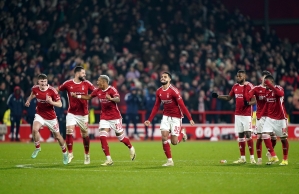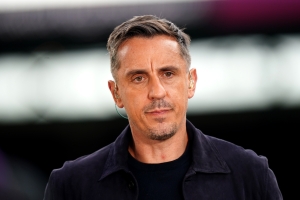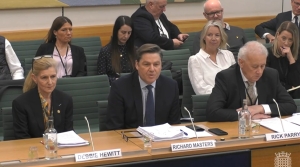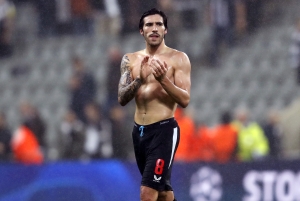FA Cup replays are being scrapped next season, ending 150 years of tradition and sparking calls for EFL clubs to be compensated for lost revenue.
The Football Association announced the format change on Thursday morning as it confirmed a new agreement with the Premier League which will increase funding to the grassroots game by up to an extra £33million per season.
The FA’s chief executive Mark Bullingham said the new format – which includes fifth-round ties reverting to weekends after five seasons in midweek, and the final being played on the penultimate weekend of the Premier League season – would strengthen the FA Cup.
Changes to the domestic calendar were inevitable given the expansion of the Champions League from next season, and although replays’ days have appeared numbered for some time, a Football Supporters’ Association poll last summer found 69.5 per cent of fans still saw them as an important part of the FA Cup.
The FSA has relayed the “serious concerns” of fans about the loss of replays to the FA, while the EFL expressed frustration and disappointment over how it has felt sidelined on the detail around such a pivotal calendar decision affecting its clubs, particularly since talks over its own financial settlement with the Premier League stalled earlier this year.
The EFL will now seek to discuss the mechanisms within the new agreement to ensure its clubs do not lose out financially from the loss of replays.
The FA’s statement said the Professional Game Board – which includes four EFL representatives including its chairman Rick Parry – had approved the overall calendar for next season containing the changes.
Sources close to the EFL insist that although there was broad agreement on the calendar at the Professional Game Board level, the EFL had not been privy to discussions around the mechanisms to ensure the changes did not cause its clubs financial detriment.
The sources also insisted it was not true that the EFL’s own board had approved the changes, only that it had been appraised of what was discussed at the Professional Game Board. The timing and content of Thursday’s announcement is understood to have taken the EFL and its clubs by surprise.
The FSA, which has held regular meetings with the FA over the cup’s format, said: “It’s clear today’s announcement about the FA Cup has not gone down well with a lot of fans up and down the country.
“Supporters are concerned that the changes to the FA Cup will further diminish what makes the competition enduringly popular – namely its history, heritage and tradition.
“While we recognise the footballing calendar is coming under impossible strain – due to the increasing bloat of FIFA and UEFA competitions – recent surveys of both our members and National Council revealed serious concerns about loss of replays and the impact that could have on the magic of the competition.
“The FA Cup is the oldest domestic cup competition in the world, an asset of national importance, and we have shared those concerns with the FA as its primary custodians.”
EFL chief executive Trevor Birch said: “Whilst the league had previously been involved in discussions over the future of the calendar, these were predicated on the agreement of a new financial deal with the Premier League for EFL clubs which has not progressed.
“This is frustrating and disappointing given the calendar is a shared asset across football and as we have consistently said a whole game approach is required to find solutions to complex fixture scheduling challenges.
“Our domestic calendar has been put under extreme pressure by the expansion of UEFA competitions and ultimately this represents another lost traditional revenue stream for EFL clubs at a time when the financial gap between the biggest clubs and those further down the pyramid is growing bigger than ever.
“We will now be discussing the implications for EFL clubs and seeking appropriate compensation arrangements.”
The EFL announced on January 24 that it would not make any changes to the format of next season’s Carabao Cup until a new financial deal had been agreed. That leaves open the strong possibility of clashes between that competition and UEFA dates next season.
FA sources have challenged the notion that replays are major revenue earners for lower-league clubs.
Of the 19 third and fourth-round replays in the last 10 years where an EFL side was away to a Premier League team, 12 had an attendance of over 25,000. Only a very small percentage of first and second-round replays over the same period achieved attendances of over 7,000.
While the FA Cup final will not be the last domestic fixture of the season, as was the case for many years, there will not be Premier League matches scheduled on the same day.
The late May Bank Holiday weekend has been ringfenced for the EFL play-offs.
The mid-season break has also been scrapped in order to allow the 2024-25 Premier League season to start in mid-August. It is hoped the longer break will ensure top-flight clubs are able to give their players a consecutive three-week rest.































